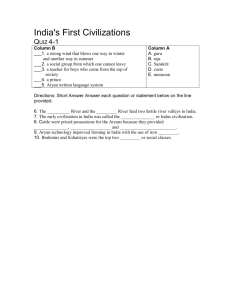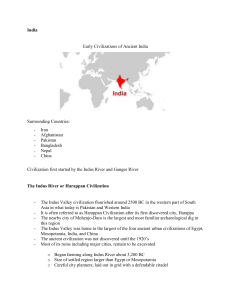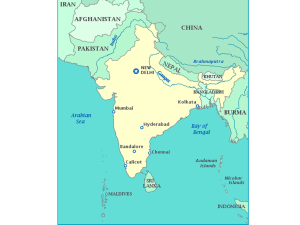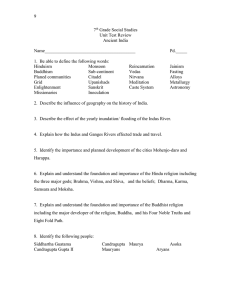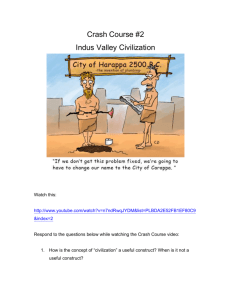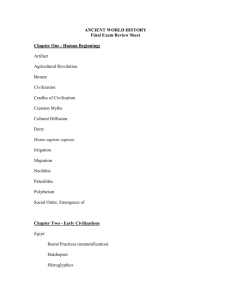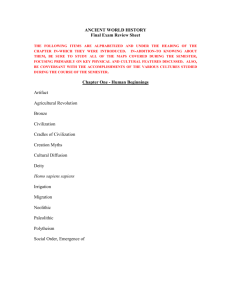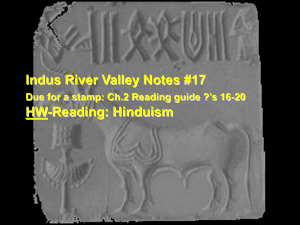India Map Assignment Link
advertisement
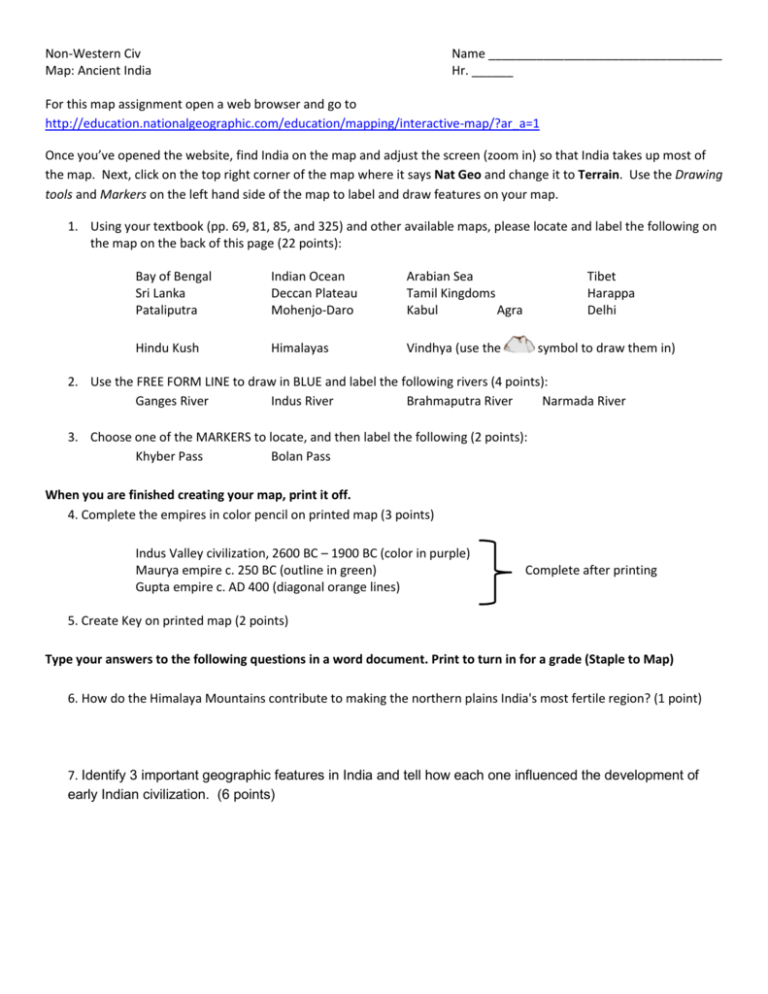
Non-Western Civ Map: Ancient India Name __________________________________ Hr. ______ For this map assignment open a web browser and go to http://education.nationalgeographic.com/education/mapping/interactive-map/?ar_a=1 Once you’ve opened the website, find India on the map and adjust the screen (zoom in) so that India takes up most of the map. Next, click on the top right corner of the map where it says Nat Geo and change it to Terrain. Use the Drawing tools and Markers on the left hand side of the map to label and draw features on your map. 1. Using your textbook (pp. 69, 81, 85, and 325) and other available maps, please locate and label the following on the map on the back of this page (22 points): Bay of Bengal Sri Lanka Pataliputra Indian Ocean Deccan Plateau Mohenjo-Daro Arabian Sea Tamil Kingdoms Kabul Agra Hindu Kush Himalayas Vindhya (use the Tibet Harappa Delhi symbol to draw them in) 2. Use the FREE FORM LINE to draw in BLUE and label the following rivers (4 points): Ganges River Indus River Brahmaputra River Narmada River 3. Choose one of the MARKERS to locate, and then label the following (2 points): Khyber Pass Bolan Pass When you are finished creating your map, print it off. 4. Complete the empires in color pencil on printed map (3 points) Indus Valley civilization, 2600 BC – 1900 BC (color in purple) Maurya empire c. 250 BC (outline in green) Gupta empire c. AD 400 (diagonal orange lines) Complete after printing 5. Create Key on printed map (2 points) Type your answers to the following questions in a word document. Print to turn in for a grade (Staple to Map) 6. How do the Himalaya Mountains contribute to making the northern plains India's most fertile region? (1 point) 7. Identify 3 important geographic features in India and tell how each one influenced the development of early Indian civilization. (6 points)

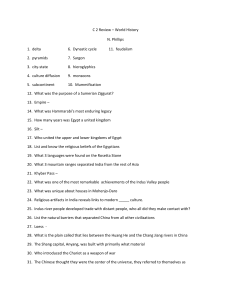
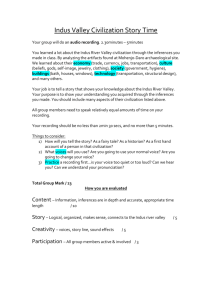
![Indus[1] - ridgeaphistory](http://s3.studylib.net/store/data/006736077_1-c59280ecd30594bac8ab21ec7bce4db4-300x300.png)
